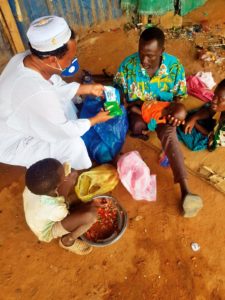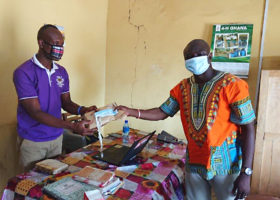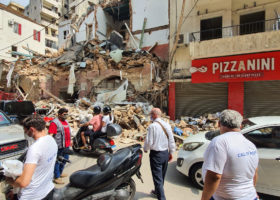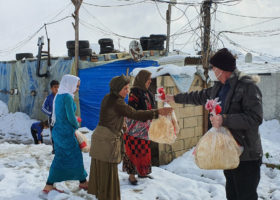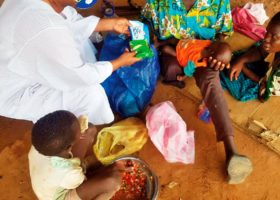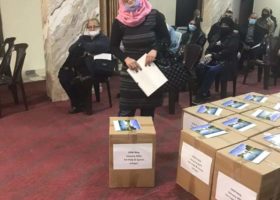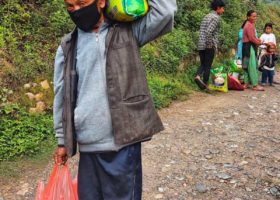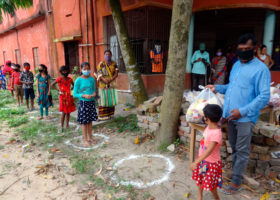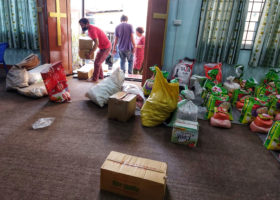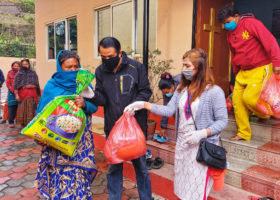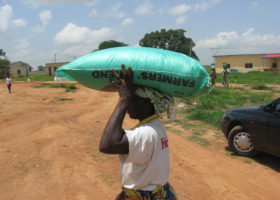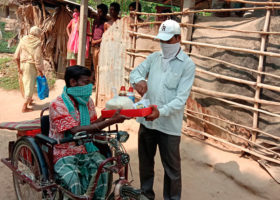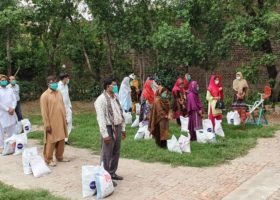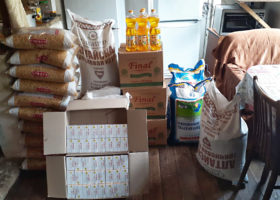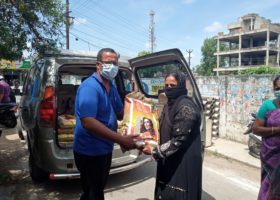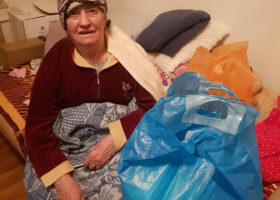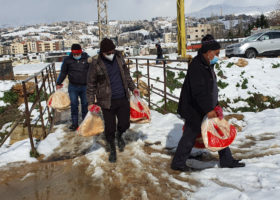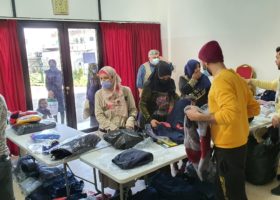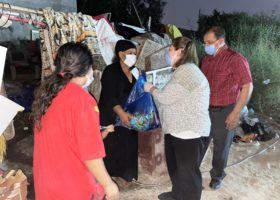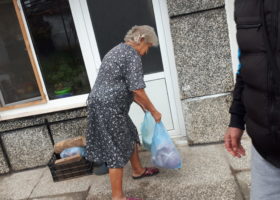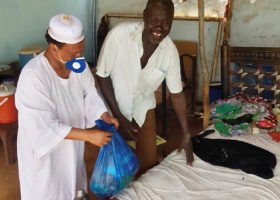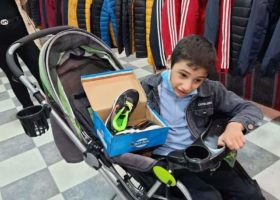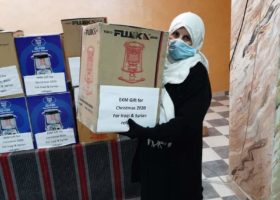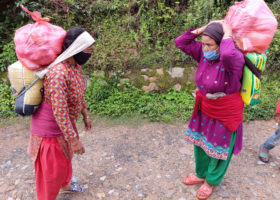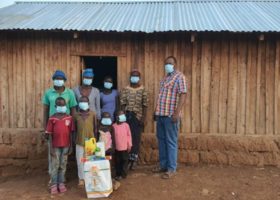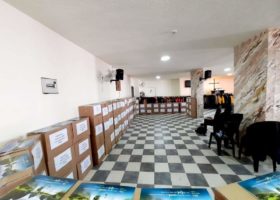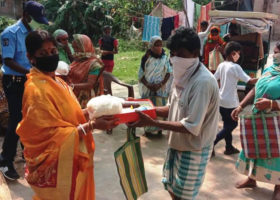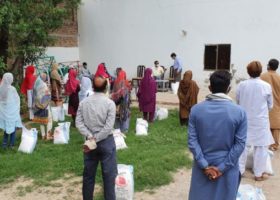The corona pandemic since 2020
Since the beginning of 2020, a new type of coronavirus has kept the people and countries of the world in suspense in an unprecedented manner. Many people fell ill with the virus, and unfortunately many died. In addition, in almost all countries, governments have imposed extensive restrictions on public and private life: services and meetings have been restricted or banned; Schools and shops had to close; Exit and contact bans have been issued and a mask requirement has been introduced in many places. Unfortunately, the measures that were intended to reduce the spread of the virus have often led to very negative consequences for the people in other respects – especially in many of the poor countries in which Call of Hope is active.

We want to alleviate the need
In India, for example, millions of migrant workers lost their jobs and with them their livelihoods overnight. In many African countries, the supply chains from urban markets to rural areas suddenly stopped working. Elsewhere, under lockdown regulations, smallholders were unable to cultivate their fields. Because of the lack of tourism, many people have lost their livelihood. In this emergency situation, Call of Hope has been active in numerous ways to alleviate the misery. We were able to provide help to the local Christians as well as many Muslims. On this page we would like to give you an insight into our Corona aid campaigns in individual countries, which were and are made possible thanks to the gifts of our mission friends.
Jordan
At the beginning of the pandemic, the Jordanian government had one of the strictest lockdowns in the world. Apart from emergencies, people were not allowed to leave their homes. When the government could no longer ensure the food supply in the neighborhoods, the lockdown was eased somewhat so that people could go shopping at certain times of the day. Unfortunately, the already tense economic situation has worsened a lot due to the corona crisis and the lack of tourism. This also applies to the many Syrian and Iraqi refugees in the country. Right at the beginning of the crisis, our Jordanian employees distributed emergency aid packages. Our monthly food aid for hundreds of Syrian and Iraqi refugee families is also very important. The refugees are also provided with clothing, blankets, mattresses and other household items.
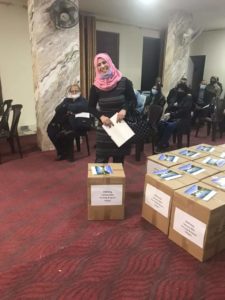
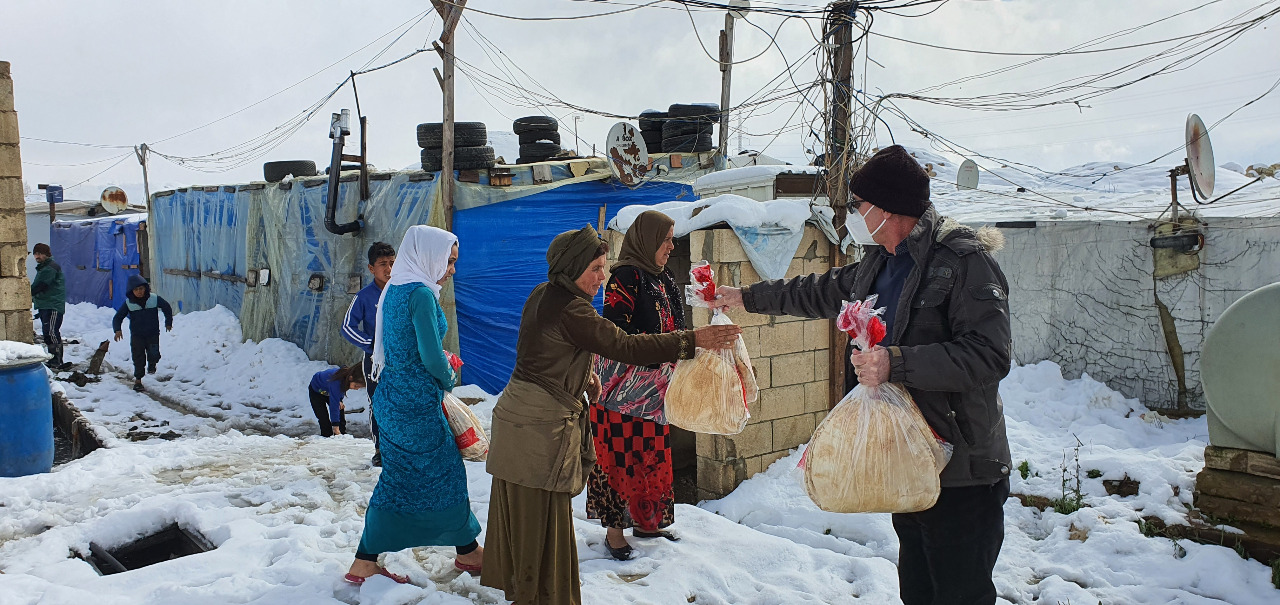
Lebanon
Even before the Corona crisis, Lebanon was on the verge of an economic and social collapse. The corona crisis has proven to be another fire accelerator in this context. Many people fell ill with the virus, including some of our employees. The severe lockdowns have intensified the economic downward spiral. Many people have lost their savings due to hyperinflation. The shops are empty and the need is great. This now affects Lebanese as well as the many Syrian refugees in the country. Another major disaster was the port explosion in Beirut on August 4, 2020, in which the homes of 300,000 people were destroyed or damaged.
Since the beginning of the Corona crisis, the employees of Call of Hope have been working tirelessly to alleviate the need as far as possible. In addition, the needy people come to our centers to receive help, and our employees also drive directly to the Syrian refugee camps to distribute aid. Every day they receive urgent requests for help and food. Since the port explosion in Beirut, a team from Call of Hope has also been going there every week to provide immediate aid in the form of food or reconstruction aid for the destroyed apartments.
Ghana
Like many other African countries, Ghana was not effected too harshly by the Corona crisis in terms of health. However, a partial lockdown was initially issued in Ghana in the second quarter of 2020, which was then slowly relaxed again after a few weeks. Our employees reported that during the time of the lockdown a particularly large number of Muslims in northern Ghana were addressed by our evangelistic radio broadcasts. The schools also had to close. Therefore, our staff personally visited the Muslim students who take part in our Bible correspondence course in their local villages and thereby encouraged them. Urgently needed hygiene articles could also be distributed in the villages. In addition, our peasant evangelists in Ghana received food aid.
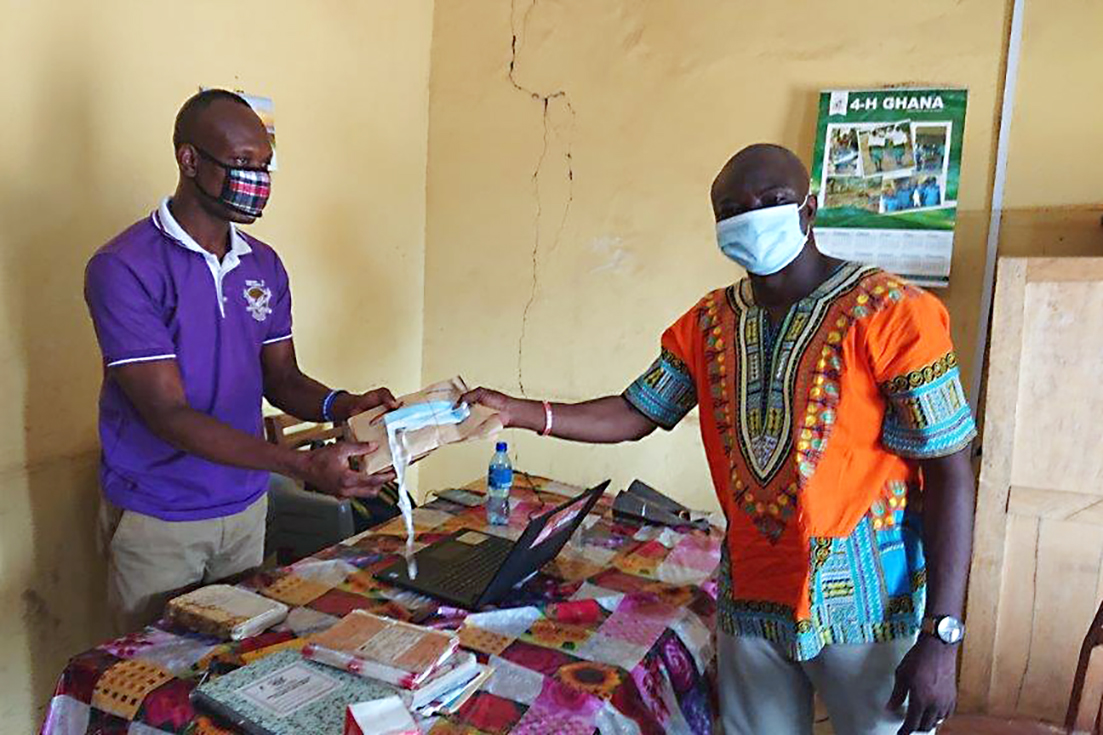
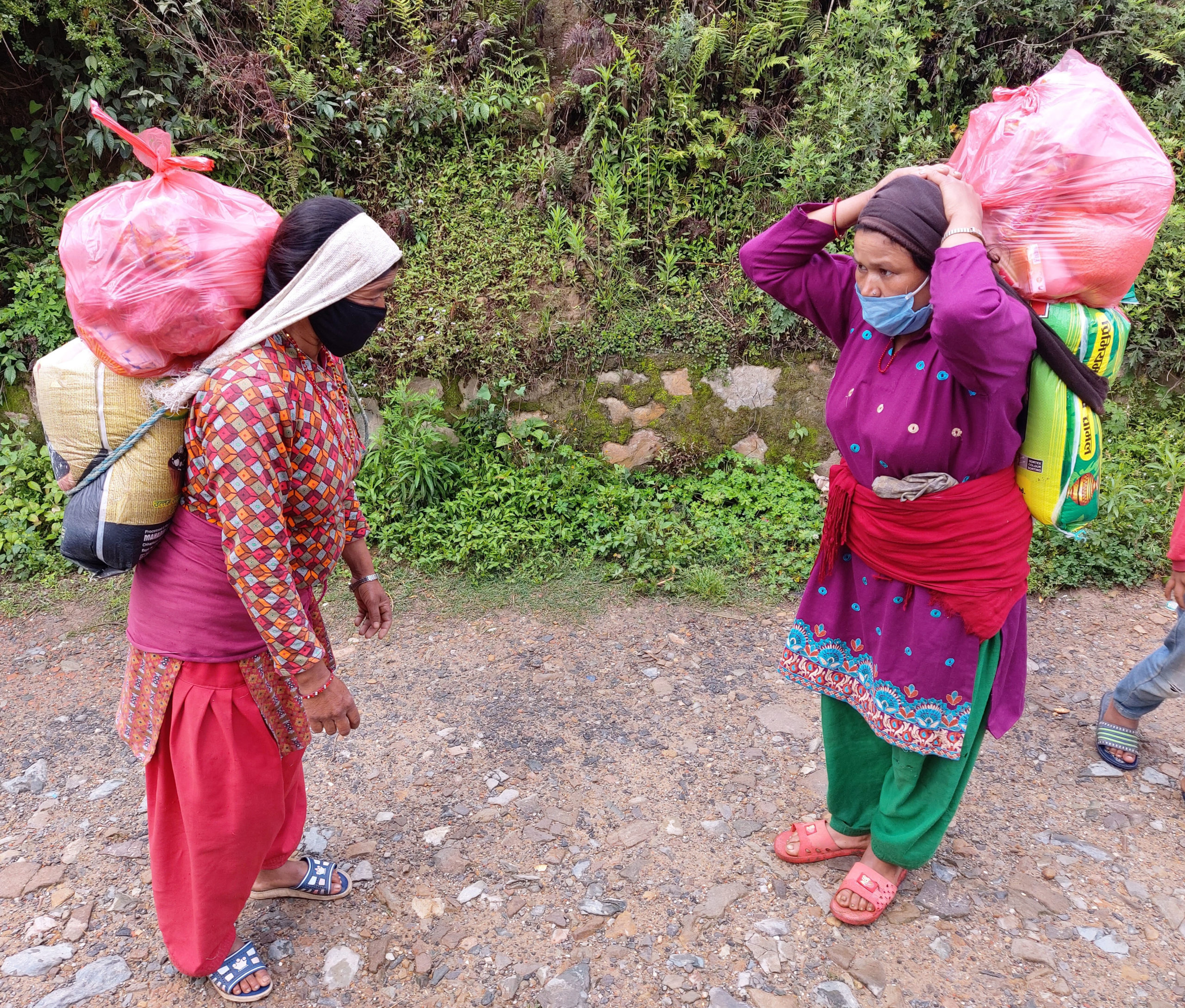
Nepal
Our employees in Nepal are happy that church services (with restrictions) are finally possible again! The country suffered for a long time under the strict lockdown measures. Many protests, some of which were violent, broke out against the government’s restrictions. Nepal is a very poor country. Providing food to the Christians who were affected by lockdowns, business closings and unemployment was a priority for Call of Hope. Muslim Rohingya refugees were also provided with emergency food aid. Our evangelistic radio broadcasts for the Muslim minority in Nepal was also met with a very good response. Because the local radio stations lost their advertising revenue during the lockdown, they were even more willing to broadcast Call of Hope programs!
Sudan
When a nationwide lockdown was imposed in the spring of 2020, our employees in Sudan applied for and received a special permit so that they could continue to travel across the country. Thus, they could continue to visit the believers in the different parts of the country and provide them with Corona aid from Call of Hope. In particular, poor widows and needy refugees were provided with food parcels. Our employees are also looking for creative ways to reach Muslims with the message of God’s love, especially during the pandemic. For example, they formed “disinfection teams” who offered to disinfect the hands of the people who were in the market in the capital of Khartoum, free of charge. It was a good opportunity to tell Muslims about God’s love at the same time! Since the fall of the dictator Omar al-Bashir, the situation for Christians in Sudan has improved a lot. This is also evident now during the corona pandemic, when the transitional government has officially asked the churches for help in dealing with the crisis.
